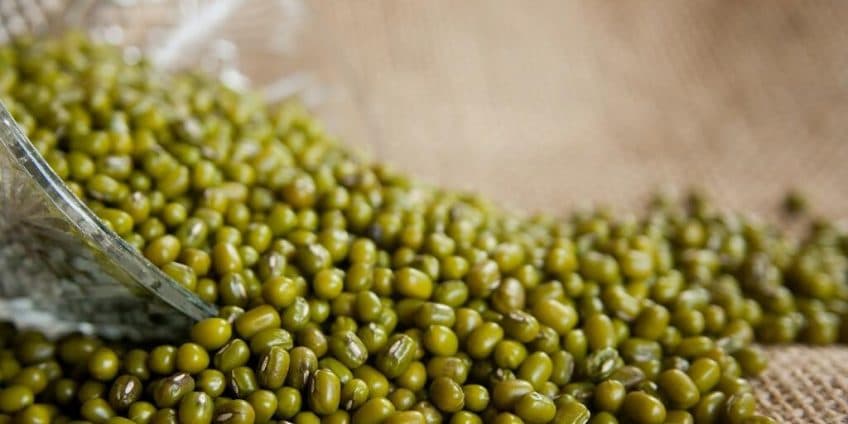Scroll to Recipes with Green Gram / मूंग as ingredient
Mung bean is also known as green gram or moong. Green Gram is small in size and green colour and is slightly sweet and fresh.
The use of Mung Bean is versatile, and one can add in salads, soups, or sabzi. Also, they are high in nutrients and has various health benefits.
Commonly Known As
| Language | Name | Written As |
|---|---|---|
| Hindi | Moong | मूंग |
| Gujarati | Mag | મગ |
| Marathi | Mūga | मूग |
| Malayalam | Maṅg bīn | മംഗ് ബീൻ |
| Tamil | Avarai vitai | அவரை விதை |
| Arabic | Alfawl mawnij | الفول مونج |
| Bengali | Muga ḍāla | মুগ ডাল |
| French | Haricot mungo | Haricot mungo |
Health benefits
Rich in antioxidants
Mung bean is one of the best sources of protein. They are rich in amino acids, such as phenylalanine, valine, and lysine. Moreover, the human body cannot produce these amino acids on its own. Therefore, the consumption of mung beans is essential.
Moreover, mung beans are rich in vitamins, minerals, protein, and fibre.
Source: sciencedirect.com
Reduce bad cholesterol level
Researches show that mung beans have properties that help reduce bad cholesterol level.
Source: ncbi.nlm.nih.gov
Reduce blood pressure
Mung beans are a good source of potassium, fibre, and magnesium. They help lower the blood pressure level in adults.
Source: ncbi.nlm.nih.gov
Suitable for the digestion system
Mung beans contain soluble fibre and starch that regulate the digestive system. Therefore, the carbs present in mung beans are less likely to affect flatulence than other legumes.
Source: onlinelibrary.wiley.com
Lower blood sugar level
Mung beans are high in fibre and protein as well. Also, it is rich in antioxidants that help lower blood pressure. In addition, it possesses many properties that keep the blood sugar level in control.
Source: ncbi.nlm.nih.gov
Promote weight loss
Due to high fibre, mung beans keep you full for a more extended period. It suppresses hunger hormones like ghrelin. Therefore, it can help you slash your calorie intake.
Source: ncbi.nlm.nih.gov
Side effects
Mung beans do not have any side effects. Still, people with kidney and gall bladder problems should avoid consuming it.
Mung beans contain oxalate, that hampers the absorption of calcium in the body. So, if anyone is suffering from calcium deficiency, they should avoid it.
Moreover, one should chew them properly as they are heavy to digest.
Frequently Asked Questions
Is mung bean a lentil?
No, they are not lentil.
What are the benefits of eating mung beans?
Mung bean is rich in protein, minerals, vitamins, and fiber. Therefore, it helps reduce bad cholesterol level and also provide energy to the body.
Do mung beans need to be soaked?
Yes, mung beans need to be soaked at least four hours prior.
Is it okay to eat mung beans daily?
Yes, they are rich in potassium, fiber, and protein. It fills your stomach and very good for health.

